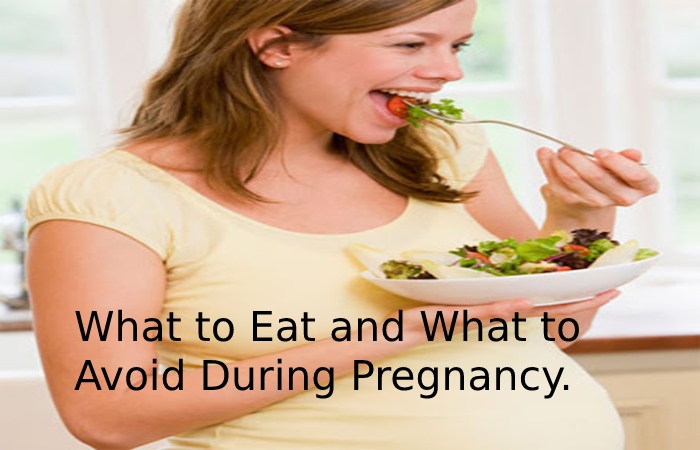Pregnancy women should ensure that their diet provides enough nutrients and energy for the baby to develop and grow properly. You also need to make sure that your body is healthy enough to cope with the changes that are taking place.

The mother’s diet must remain balanced and nutritious for her pregnancy to be healthy; This means that your protein, carbohydrate, and fat intake are balanced. You are also eating a variety of plants such as vegetables and fruits.
Table of Contents
Basic Facts About Diet During Pregnancy:
A pregnant woman’s calorie intake increases during pregnancy. She doesn’t eat for two. Most pregnant women only increase their caloric intake by a few hundred calories a day.
In general, weight gain when a mother has a single baby varies significantly based on pre-pregnancy weight and other factors. For example, weight gain is recommended for an underweight pregnant woman, while weight gain as little as possible recommend for an overweight woman.
A woman’s body is more efficient at absorbing iron. Therefore, as blood volume increases during pregnancy, she needs to drink more iron to ensure that she and her baby are adequately oxygenated.
Fruits and Vegetables
Try to trouble five servings of fruits and vegetables a day. You can consume them in the form of juice, dried, canned, frozen, or fresh. Fresh and frozen products (if frozen shortly after harvest) tend to have higher levels
of vitamins and other nutrients.
Experts point out that eating fruit is often better than just drinking juice because the natural sugar content in the liquid is very high. Instead, consider vegetable juices like carrots or wheatgrass for a dense diet.
Starchy Carbohydrate Foods
Foods high in stiff carbohydrates include potatoes, rice, pasta, and bread. Carbohydrates are high in energy and essential for a good diet during pregnancy.
Protein
Healthy animal proteins include fish, lean meat and chicken, and eggs. In addition, all pregnant women, and vegans, in particular, should consider the following foods as good sources of protein:
Quinoa, known as “complete protein,” contains all essential amino acids.
Soy and Tofu Products
Beans, lentils, legumes, nuts, seeds, and nut butter are good sources of protein and iron. British and Brazilian researchers informed in the journal Plops ONE that pregnant women who ate shellfish were less afraid than those who didn’t. However, the authors write that expectant mothers who never consumed shellfish had a 53% increased risk of high anxiety.
Fats
Body fat should type up no more than 30% of a pregnant woman’s diet. However, University of Illinois researchers reported in the Journal of Physiology that a high-fat diet could predispose a baby to develop diabetes later in life.
Fibre
Whole grain products like whole grain bread, wild rice, whole-wheat pasta, legumes like beans and lentils, fruits, and vegetables are high in fiber.
Women are at greater risk of developing irregularity during pregnancy; Consuming a lot of fiber will help you minimize this risk. In addition, studies have shown that consuming lots of fiber during pregnancy reduces the risk or severity of hemorrhoids, which also become more common as the fetus grows.
The fact that the pregnancy test is positive means, in many cases, a change in eating habits – for the better – of the woman. Although the first trimester may not be the most appropriate for a healthier, more balanced diet, especially if you suffer from constant nausea and vomiting, the second trimester is coming soon, when the woman feels full and energetic, an ideal time to add Add foods that ensure good nutrition for both mother and baby. And in this list, you can’t miss the vegetables.
Vegetables are perfect for ensuring a good supply of vitamins and minerals; besides preventing diabetes, they also help control blood pressure and even reduce the risk of maternal anemia. In addition, vegetables are perfect for the fetus to achieve a reasonable weight at birth and avoid some congenital malformations such as neural tube defects (related to the contribution of folic acid).
Since it’s so important in pregnancy, we’ve come up with a complete list of the most recommended vegetables
